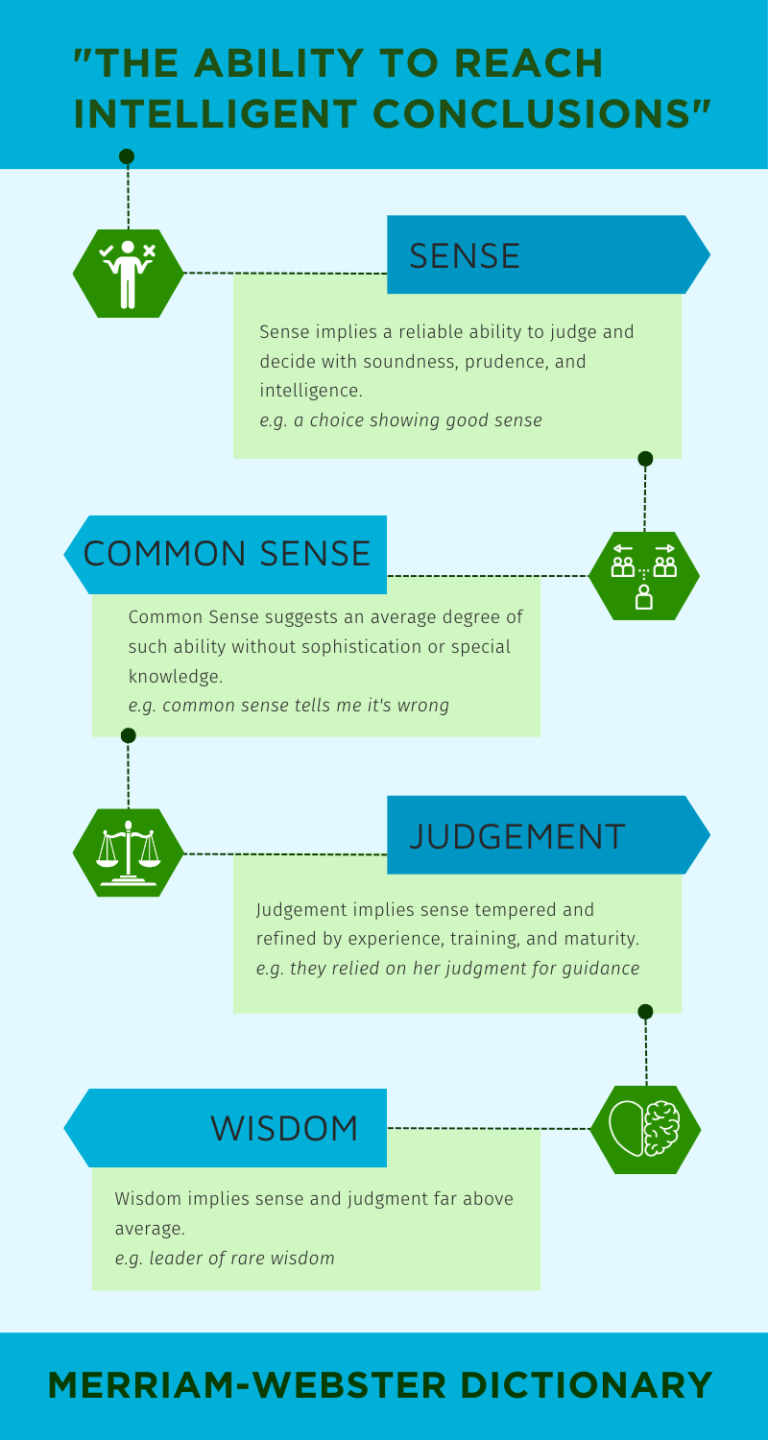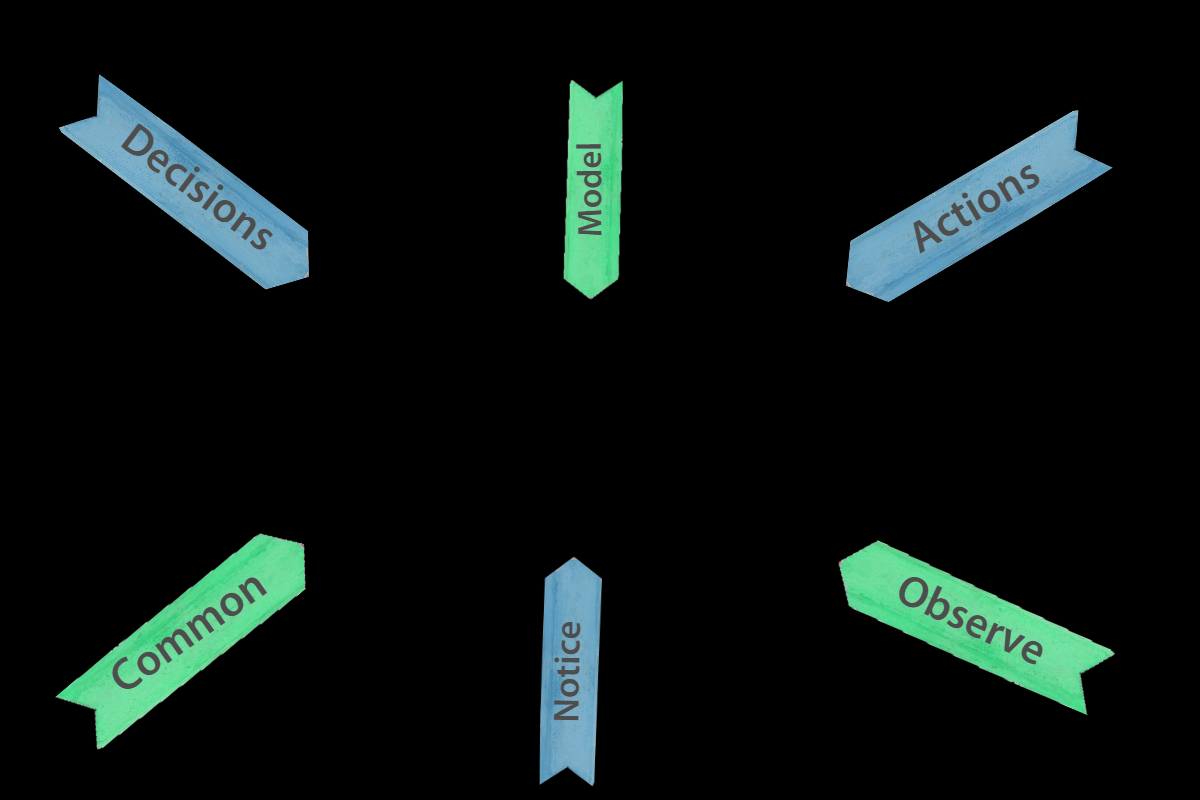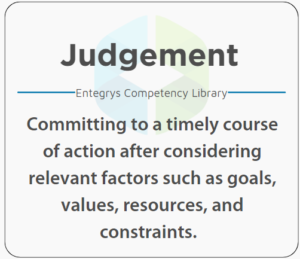You’ve heard the expression, “Use your common sense!” The sad fact is that common sense is not common.
Maybe it’s called common sense because it is more absorbed than taught. Unfortunately, if you grew up in a dysfunctional environment, it is unlikely common sense was modeled for you. And even if it was, if you’re a concrete thinker, then you need to have the principles explained as well as modeled.

What is common sense and how does it relate to good judgment?
According to the Merriam-Webster dictionary, common sense is “sound and prudent judgment based on a simple perception of the situation or facts”.
Wikipedia defines it this way. “Common sense (or simply sense) is sound, practical judgment concerning everyday matters, or a basic ability to perceive, understand, and judge in a manner that is shared by (i.e. common to) nearly all people.”
I question if common sense ‘is shared by nearly all people’. You may have seen enough exceptions to question this as well.
Nevertheless, it is clear from these definitions that common sense is the very foundation on which good judgement is built. If it were a university course, common sense could be called Judgement 101.
So, if common sense is this important to good judgement, can it be learned and developed? The answer—from firsthand experience—is yes! Like the behaviours in any competency, they can be developed. Here are some proven tips you may want to try.
Building Common Sense
Level 1- Foundational tools
- Become a noticer
- Watch how others are reacting to everyday life situations.
What kind of choices do they make that work well? That don’t? - Notice how they’re reacting to your actions and choices.
What are the expressions on their faces? What does their body language tell you about your actions?
- Think ahead
- Before you act, stop to consider:
If I do this, what is likely to happen? What else might my actions affect? What unintended consequences could this have? - Weigh the pros and cons of your options.
- Be curious
- Ponder what John (your idol) would do in this situation.
- Ask questions—of yourself and others.
How did you do that? Why did you do that? Why did this work and that didn’t?
- Try something new
- Experiment:
It’s how babies learn to walk and talk. It’s how inventors come up with valuable products and scientists make new discoveries. It’s how we learn what works. - Allow yourself to try and fail.
It happens to all of us. It’s how we discover ‘normal’—that elusive center of the pendulum.
Level 2 – Advanced tools
- Become a habitual observer
- Make a conscious habit of observing how others behave when making everyday decisions.
- Notice which individuals seem to consistently exercise good judgement, and which do not.
Why do you think their judgement is good? What do you notice—see, hear, feel? How do their behaviours differ from those with poor judgement in similar situations?
- Model excellence
- Explore the below conscious perceptions, thoughts and values of someone who consistently exercises good judgement. As they relive an experience in which they exercised good judgement, ask questions like:
What are you aware of around you? What are you thinking? Saying? Feeling? What’s important to you here? How do you perceive your capabilities and influence in this situation? - Take note of the thinking and behaviour patterns of your model.
Test the patterns in a similar situation to decide which help you achieve the results you want.
- Be a continuous learner
- Read voraciously and think critically. Don’t just accept ideas and decisions because they come from an ‘authority’ or fit with popular thinking.
Do they pass the test of your common sense? Do they align with your values and principles? - “If it ain’t broke, don’t fix it.” This may be good advice in combatting perfectionism, but it’s a killer to creativity and innovation.
Just because something made sense in past circumstances doesn’t mean that it will work when the environment, circumstances and culture change. So be open to explore new ideas and approaches. They just might make common sense.
- Trust your instincts
- A high IQ is great for analyzing situations and solving complex puzzles. But you only need to look around to know that it does not guarantee common sense in actions and decisions.
- Common sense is indeed a sensing process. It is about imbedding sound decision-making practices into the subconscious.
So after working at the conscious level to cultivate your common sense, trust your instincts—your unconscious competence—as an internal test of your actions and decisions.
Are you curious about how you and others perceive your level of common sense and judgement?
Entegrys can help you discover your strengths and development needs in this and other competencies in high demand by employers today.͢ Simply buy credits for an Entegrys 360 Focus®, then choose the ‘High Demand’ profile for your assessment.






